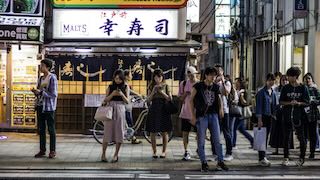TOKYO, Nov 01 (News On Japan) - The number of elementary and junior high school students in Japan who are classified as "chronically absent" has reached a record high of about 350,000, according to the Ministry of Education's latest survey.
Each year, the Ministry of Education surveys elementary, junior high, high schools, and special education schools nationwide on issues such as chronic absenteeism and bullying. The results for the last fiscal year were released on October 31.
The survey revealed that the number of elementary and junior high students in a state of chronic absenteeism increased by about 47,000 from the previous year, totaling 346,482 students. This marks the 11th consecutive year of increase and a record high.
At the high school level, the number also rose by about 8,000, reaching a record 68,770 students.
The Ministry of Education attributes this increase in part to a growing understanding among parents, many of whom no longer feel compelled to force their children to attend school.
In addition, the number of bullying cases recognized in elementary, junior high, and high schools reached a record 732,568 cases.
There were also 1,306 severe bullying incidents classified as "serious cases" that could lead to chronic absenteeism or suicide, the highest number recorded. In about 40% of these cases, schools had not recognized the incidents as bullying until they were officially identified as serious cases.
Source: ANN















